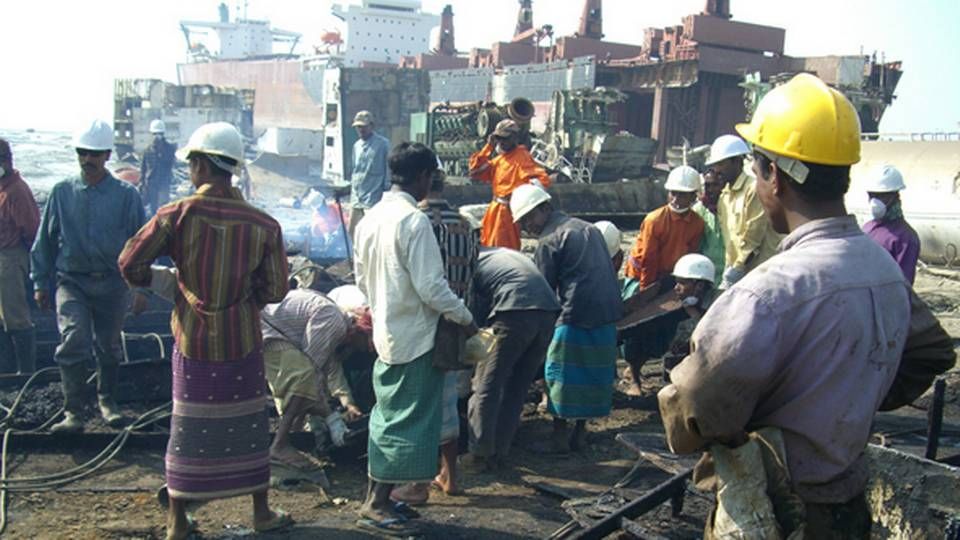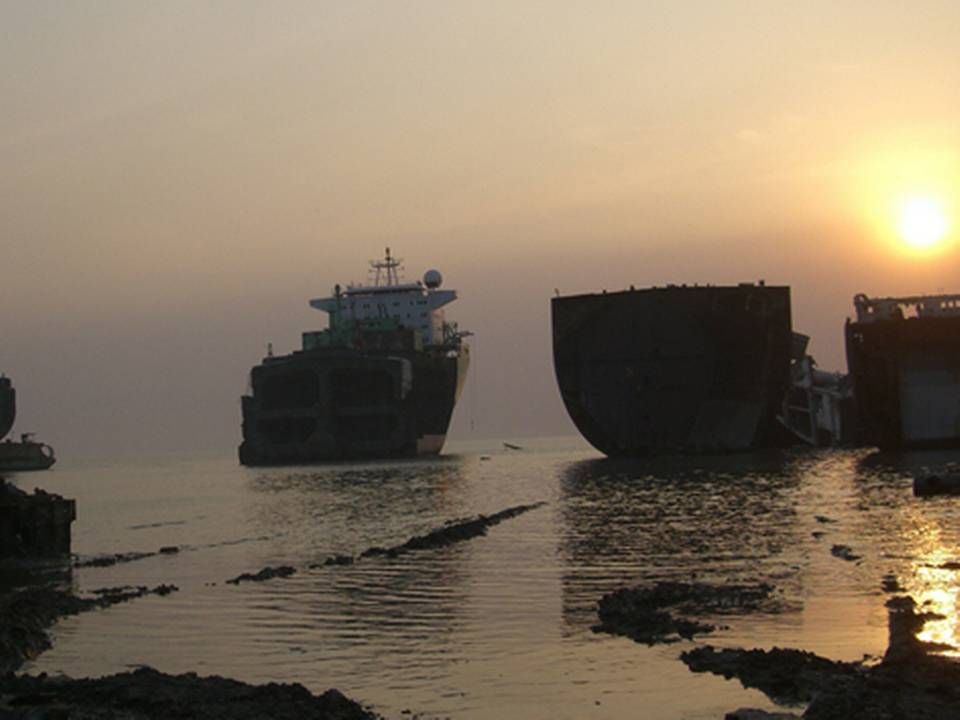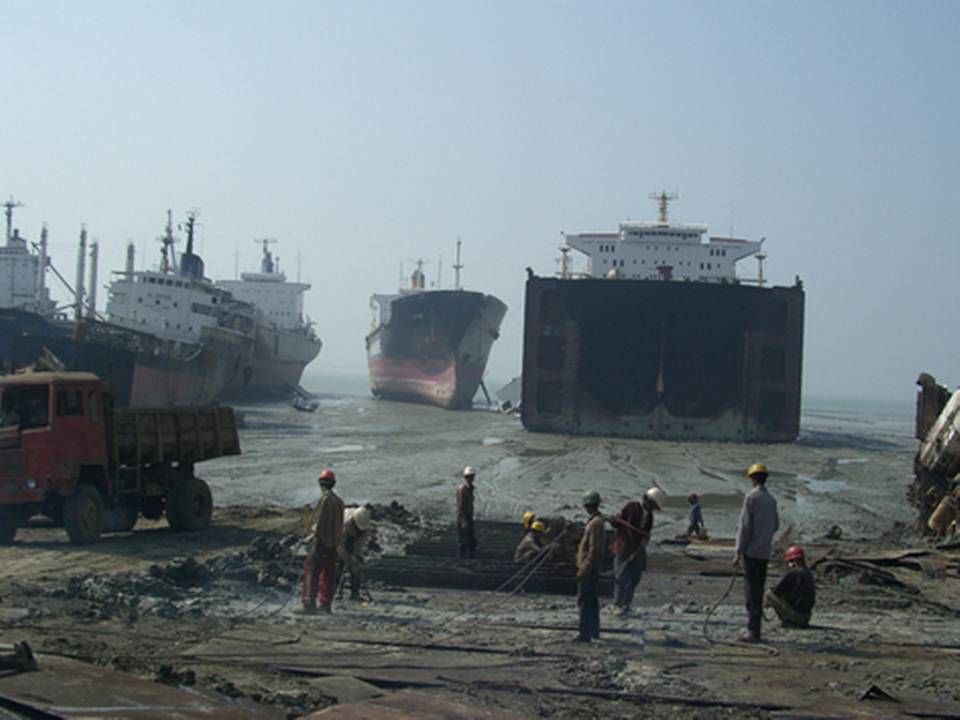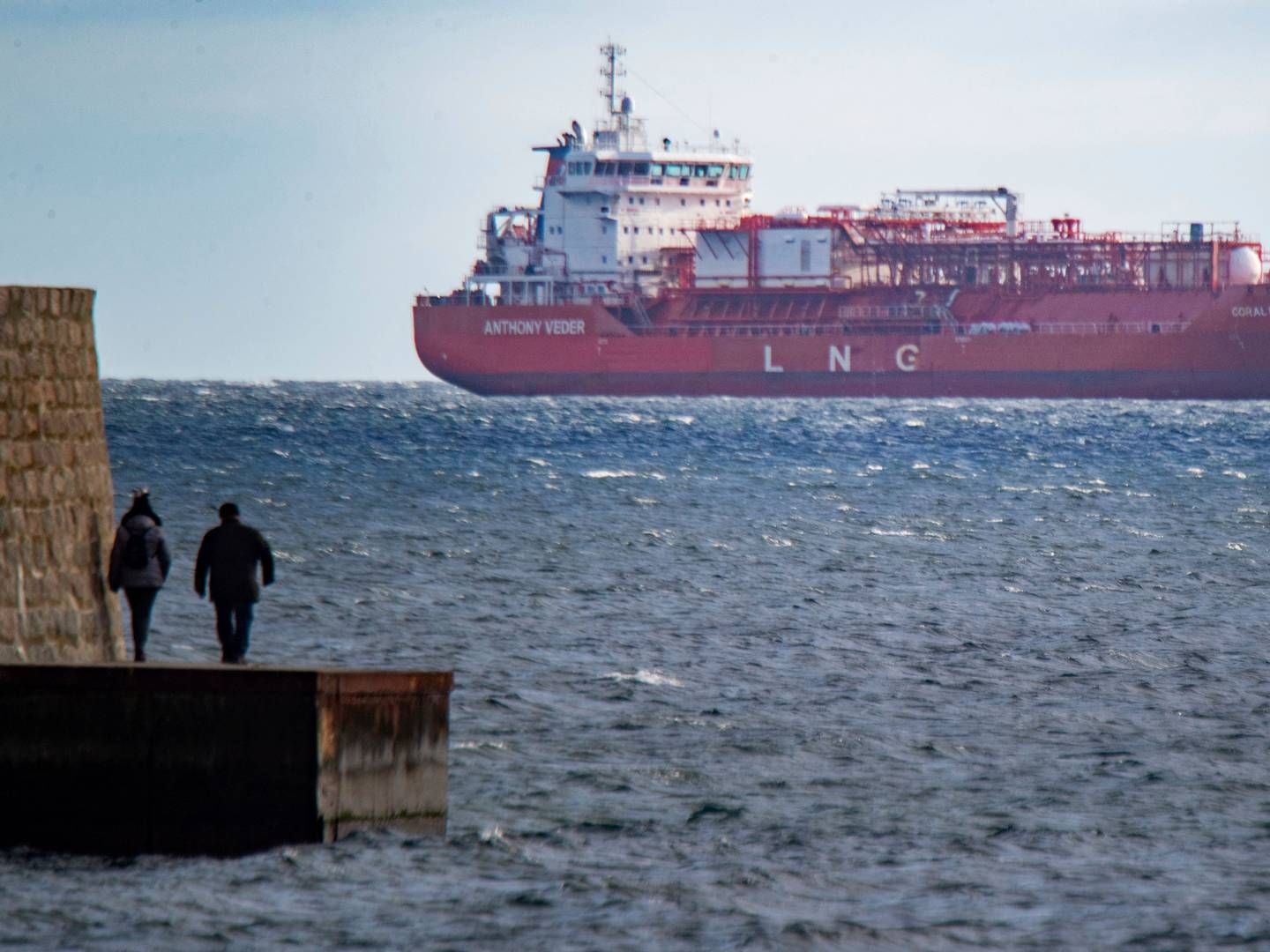Norwegian shipowners banish scrapping on Alang

The Norwegian Shipowners' Association becomes the first body representing one of the world´s biggest shipping nations strongly condemn beaching, a practice otherwise still used by shipowners when they opt to have their vessels scrapped in Asia. The shipbreaking method has for years been criticized for its poor and irresponsible working conditions, and numerous NGOs have called on countries and shipowners to take action against it.
"Scrapping vessels on beaches in Asia happens at significant human and environmental costs. It cannot be in the interest of the industry to accept this practice, which is not sustainable. We have to assume the social responsibility," says Sturla Henriksen, CEO of the Norwegian Shipowners' Association, in an interview with ShippingWatch.
He stresses that the signal now being sent was formulated by the association's steering committee, and thus comes directly from the Norwegian shipowners themselves. The initiative has been underway for years and represents a stark contract to other flag states' hesitance in terms of banning beaching, a matter on which countries including Denmark have a different position.
The shipping industry's dark conscience
On Monday, the Norwegian Shipowners' Association had an article featured in Norway's most widely circulated business daily, Dagens Næringsliv, in which Sturla Henriksen, on behalf of the shipowners, stated that the country should put an end to the practice of selling vessels to be scrapped on beaches in Asian nations - also in terms of selling end-of-life vessels to third parties. In the article, Sturla Henriksen's message included the following:
"It makes a strong impression to witness the working conditions at these so-called "shipbreaking facilities" on many of these beaches. Another common trait of beaching concerns the fact that vessels are placed on an unprotected coastline that is flooded by the tide, which results in environmentally hazardous substances being released into the surroundings. There are no fixed facilities around the vessels set to be scrapped, and this makes it difficult to use cranes and other heavy equipment that is normally necessary when performing safe and responsible scrapping of major vessels. The shipbreaking process, instead, often takes place at significant risk to the workers' life and health, while also damaging the environment. We also know that the actual conditions at many of these places have only improved slightly in recent years."
The Hong Kong Convention
This statement falls in line with the intentions of IMO's international Hong Kong Convention, which Norway has ratified as just one of three nations and which aims to secure improved working conditions on the scrapping beaches in countries such as Bangladesh, India and Pakistan.
As such, the association's CEO is quite straightforward when asked what the consequence might be for a Norwegian carrier if it defies the shipowners' association's position and sends vessels to be scrapped on the beaches anyway.
NGO: This many ships were beached in the first quarter
"We have a solid tradition for members following our advice, but it will be their own commercial decision and responsibility. This stance has been thoroughly discussed by our steering committee, and our members have made this conclusion clear," Sturla Henriksen tells ShippingWatch.
The crucial matter here is not that Norwegian carriers are taking the initiative, he says.
"This is not a matter of being first mover. It's about signaling a stance concerning what we believe is socially sustainable and sound business practice. We're also already doing this in an international context, as we're noting that conditions on many of the facilities are not developing positively in terms of workers and the environment. And the ratification process surrounding the Hong Kong convention is very slow," says Henriksen, adding:
"This sends a clear signal to Asia about what the shipping industry demands going forward. We hope that the market mechanisms will take effect and that the shipbreaking facilities will comply with the intentions."
No legal assistance
"Beaching" is not a uniform term, but in its most narrow definition the term refers to the act of sailing a ship onto a beach and scrapping it there. As cranes, other heavy equipment and tools cannot be placed on the sand, the shipbreaking process is mostly performed via manual labor. Even though beaching is therefore not a fixed legal entity, the Norwegian shipowners will use a simple rule of thumb.
"At the shipyard, where the process occurs, there must be fixed facilities," says Henriksen, stressing that this represents a minimum requirement, and not a requirement for fully equipped yards.
NGOs have for years been calling attention to the fact that this work is performed under miserable conditions in countries such as India, Bangladesh and Pakistan, where accidents and the loss of life are common occurrences. Reports from NGO association Shipbreaking Platform show that 14 people were killed in 2014 while working on vessels being scrapped. The issue also has an environmental aspect, as the method of sailing ships onto beaches means that liquid from the vessels leak directly into the sea when the tide washes up and floods the vessels.
And Sigurd Enge og NGO Bellona, part of the NGO group Shipbreaking Platform, is pleased with the announcement and praises the Norwegian initiative, which he describes as a farewell to a "dinosaur way of doing things."
NGO: Flag states blocking more responsible scrapping
"On behalf of the NGO Shipbreaking Platform I am happy to announce that the Norwegian Shipowners’ Association now is on our team. This is a breakthrough in the international efforts to end the “beaching”. Bellona will definitely say “Look to Norway” when it comes to taking a stand against this old fashioned way of dismantling ships," says Enge in a press release.
NGO Shipbreaking Platform estimates that Norway since 2009 has sent 150 ships to be scrapped on beaches.
Scrapping yards in Alang are shutting down
Greek shipowners face harsh criticism for beaching
Related articles
Scrapping yards in Alang are shutting down
For subscribers
EU recycling regulation will allow beaching
For subscribers





















